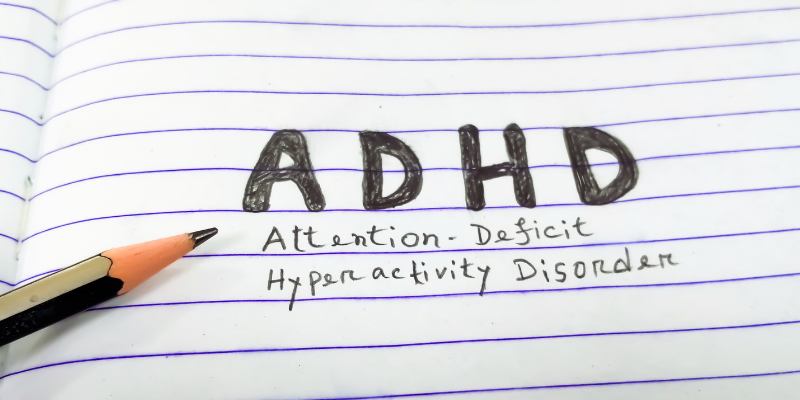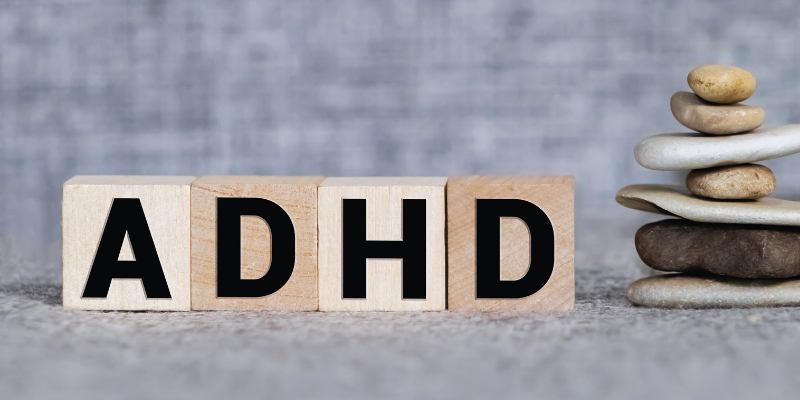ADHD Stigma: How It Affects Children, Adults, and Caregivers in Everyday Life
Children, adults, and caregivers, as well as other people, suffer from ADHD stigma. It causes misinterpretation and increases the difficulty of existence. Though it is a serious disorder, many believe ADHD is only bad behavior. Stigma generates low self-esteem, guilt, and worry. It also prevents people from receiving appropriate help. Children with ADHD could run against rejection and bullying. Adults battle in relationships and at their jobs.
Many times, caregivers feel under scrutiny or blame. Schools, businesses, and homes might not know ADHD, which would result in discriminatory treatment. Education and awareness can assist in lowering stigma. People who know ADHD show more compassion. This guide looks at how stigma affects people, children, and caregivers and strategies for combat.

The Impact of ADHD Stigma on Children
Children with ADHD often have difficulty in school and friendships. Many of their friends and teachers read their behavior as sloppiness or contempt. From this follows punishment instead of encouragement. Their confidence drops, which makes kids feel hopeless and unmotivated in the classroom, given their label as "troublemakers." Socially, children with ADHD struggle to fit in. They may fight with self-control, babble too much, or interrupt too much. Other kids would tease or avoid them, leading to loneliness and melancholy.
Without adult guidance, these children could feel unworthy and alone. Parents also get embarrassed after their child receives a diagnosis. Some mistakenly blame inadequate parenting for ADHD, so taxing households. Parents may suffer embarrassment and criticism instead of support. More awareness and education are needed to help to dispel misinterpretation. With the right support, children with ADHD can blossom and feel comfortable in social and academic settings.

The Effect of ADHD Stigma on Adults
Many people with ADHD fight in daily life with relationships and work. Stigma aggravates conditions. Some companies think ADHD makes one lethargic or careless, which causes workplace discrimination. Many disguise their ailment to prevent unjust treatment. Burnout and stress could result from their feeling under pressure to prove themselves working more. Stigma damages relationships as well. Some believe that ADHD results in immaturity or carelessness, which causes misinterpretation with relatives and partners.
Time management and organization are challenges for many adults with ADHD. If their challenges go unappreciated, they could come to feel unworthy. Commonly occurring are low self-esteem and anxiousness. Getting therapy can be difficult. Many people who ask for help worry about being judged, which might keep them from getting treatment or medicine. Fighting stigma calls for both knowledge and awareness. An environment that welcomes adults with ADHD can help them to succeed in all spheres of life and seek help without anxiety.
The Burden of ADHD Stigma on Caregivers
Caregivers of those with ADHD also deal with stigma. Many times, parents, teachers, and family members feel responsible for ADHD symptoms. Many people think poor parenting causes ADHD, which would make caregivers ashamed and unsupported. They could have trouble locating appropriate tools for their loved ones. Sometimes, teachers misinterpret ADHD and believe children only need extra discipline. Unfair treatment in the classroom follows from this. Fighting for appropriate support is demanding for caregivers.
Discussing ADHD makes some parents uncomfortable or ashamed. Stigma could cause them to avoid professional help. Emotional tension also affects caregivers. Seeing a loved one battle ADHD can be agonizing. They could be frustrated or powerless. This tension can mount up without enough support. Education and support organizations might assist in lessening the isolation experienced by caregivers. Reducing stigma helps caregivers to get the knowledge and support they need to enable their loved ones to flourish.
Ways to Fight ADHD Stigma
Starting with education, one may fight ADHD stigma. Families, businesses, and schools all need more knowledge to substitute support for judgment.
- Educate teachers: Teachers should get instruction on how to identify ADHD symptoms and apply supportive techniques. Children should be guided structurally, given positive reinforcement, and given tailored learning strategies to help them achieve academically and socially rather than punished for activities they cannot control.
- Raise awareness in schools: Schools should run instructional campaigns to inform pupils about ADHD. Students grow more accepting when they realize ADHD is a neurological disorder rather than a result of poor behavior. It can foster student bonds, lower bullying, and help build an inclusive surrounding.
- Supportive workplaces: Companies should create ADHD-friendly environments by providing clear communication, flexible schedules, and well-defined responsibilities. Understanding attributes connected to ADHD, such as inventiveness, problem-solving ability, and high energy, can enable workers to flourish and help lower stigma in working environments.
- Caregiver support: Many times, caregivers deal with stress and solitude. Support groups give people somewhere to access resources, ask questions, and share stories. Caregivers who feel supported and understood can more successfully handle daily tasks and advocate for their loved ones.
Building Self-Confidence in People with ADHD
For adults with ADHD as well as children, stigma can impair self-esteem. They might feel different or less capable. Boosting self-confidence helps people go above obstacles. Teachers and parents should value efforts above just outcomes. Celebrating little successes motivates one more and promotes development. Focusing on strengths helps adults with ADHD develop confidence as well. Many are brilliant problem-solvers, creative, vivacious people. Support groups and therapy enable one to control self-doubt. Personal development depends on one accepting oneself.
Furthermore needed by caregivers are an inspiration. Many times, they feel overwhelmed or under scrutiny. Education and support groups will help them feel less isolated. Good surroundings help those with ADHD as well as those of caretakers. People with ADHD who believe in themselves overcome obstacles. A lot counts on understanding, patience, and positive reinforcement. Society has to help them to develop confidence. No matter their hardships, everyone should feel competent and appreciated.
Conclusion:
In all spheres, children, adults, and caregivers deal with ADHD stigma. It brings misperception, unfair treatment, and emotional suffering. Children could struggle academically and in friendships. Adults could run across discrimination in relationships as much as in the workplace. Many times, caregivers experience underappreciation and lack of support. Fighting stigma demands awareness, understanding, and compassion. Families, companies, and educational institutions must work together to create a more friendly environment. Furthermore, media attention and the backing of organizations are very important. Once society embraces ADHD, those with the condition feel valuable.












